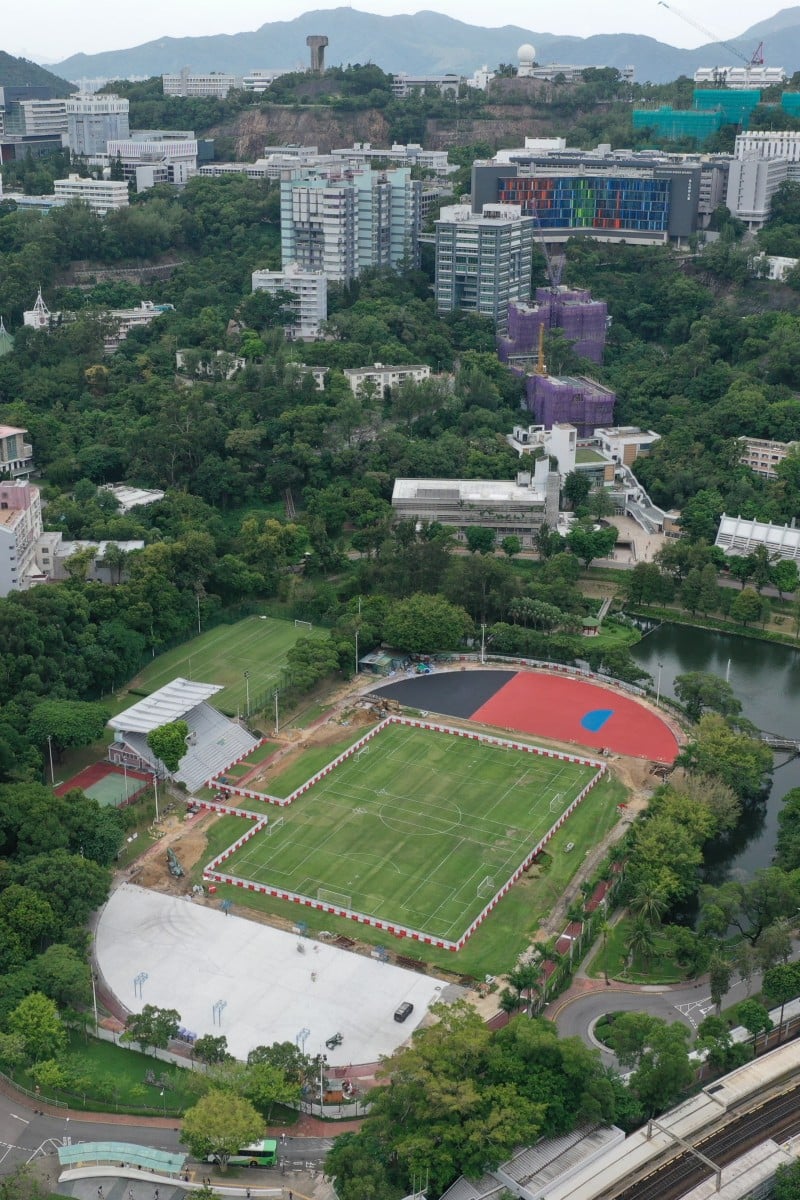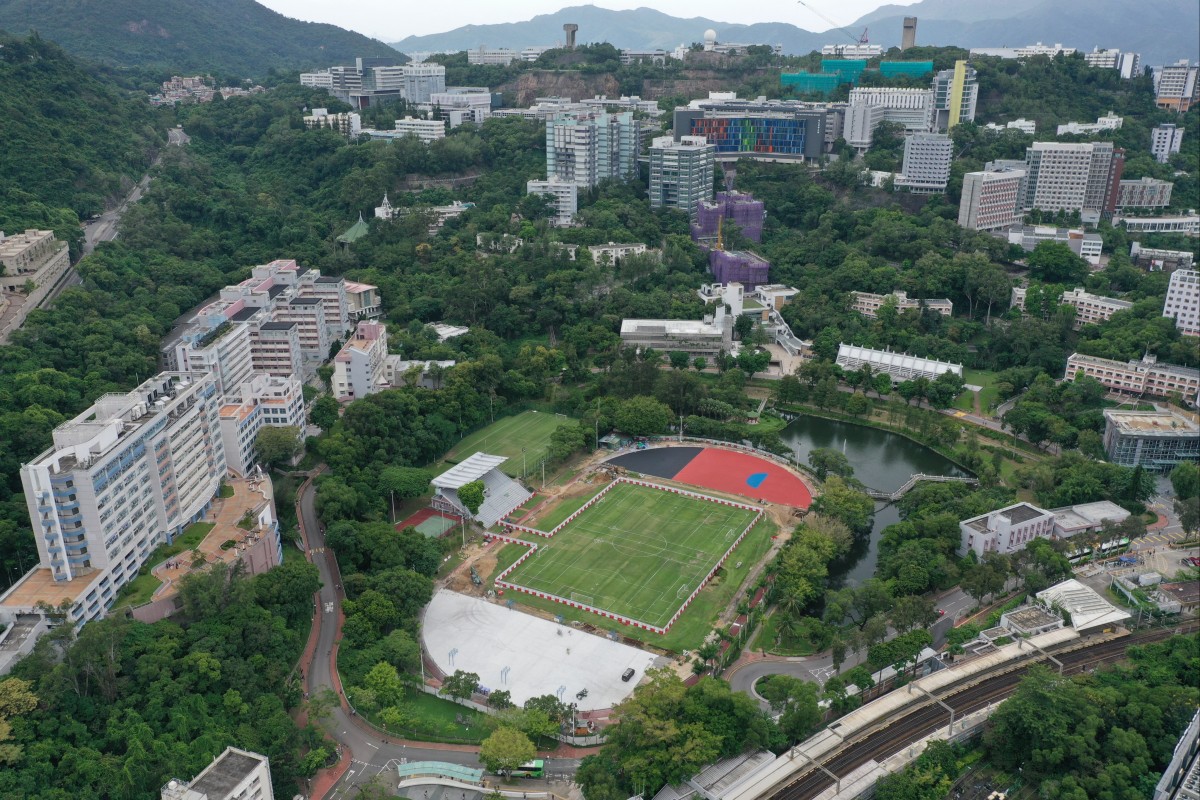
Chinese University of Hong Kong moves classes online, tells students to leave dorms
- CUHK said it would conduct all its classes virtually for the second semester and told students to vacate dormitories by the weekend, unless granted special permission
- Students are worried about their education and career prospects, since a majority of their degree has been done online since the start of the coronavirus pandemic
 The Chinese University of Hong Kong announced that a majority of its classes for the second semester of the school year would be conducted online, and that students living in the dorms would have to vacate. Photo: Winson Wong
The Chinese University of Hong Kong announced that a majority of its classes for the second semester of the school year would be conducted online, and that students living in the dorms would have to vacate. Photo: Winson WongThe Chinese University of Hong Kong has decided to conduct all its classes for the second semester of 2021-22 online and asked students to vacate the dormitories by this weekend, following several confirmed coronavirus cases involving staff and students on campus.
The university, located in Sha Tin, urged all students currently living in the dormitory to move out by this Saturday and Sunday to minimise face-to-face contact and the risk of infection on campus, unless they can provide “a compelling reason” not to move out and promise to only stay in the dormitory.
Hong Kong confirms 1,000 daily cases of Covid for the first time
All impacted students will have their housing fees reimbursed on a pro-rata basis.
Students who are granted permission to stay are required to live exclusively in their dormitory and are not allowed to go home during the weekends. In case of any violations, students will be prohibited from entering their dormitory and their fees will not be reimbursed.
The university released a statement on Wednesday saying that all classes for the remainder of the second semester, except for a few lab-based and practical ones, will be conducted online.
HK’s new social-distancing rules are the toughest yet
“All those taking part in lab-based or practical classes should be especially vigilant to the risk of infection. Extra measures, including rotating teams, reduced student numbers, and social distancing, should be adhered to at all times,” CUHK said.
The school said students can apply for a late drop of certain classes if they feel these arrangements would adversely affect their programme and disrupt individual study plans.
Jackal Lo Chun-ki, 23, a final year student at CUHK studying Physical Education, Exercise Science and Health, a five-year programme, felt the switch was somewhat concerning for his studies, as well as for the rest of his classmates.
“Even though the arrangements were something we were prepared to face, the change in the mode of teaching made our schedules exceptionally hectic, since teaching online is drastically different, especially for physical education,” he said.
The world can end the Covid emergency this year, says WHO
Students in Lo’s programme participate in two mandatory teaching placements during their studies: one during the second semester of Year Three, and another during the second semester of Year Five.
He lamented that his class is the first in the history of the university to have conducted both mandatory placements, also known as teaching practice, online over Zoom.
During his placement in Year Three in 2020, Lo was not even given a chance to conduct classes over Zoom because the school that he was assigned to did not allocate any time slots for Physical Education.
“So I had to resort to filming 30-minute instructional videos instead,” he said.
What you need to know about coronavirus jabs for kids
“The thing that upsets me the most is the lack of actual teaching experience I have received throughout my five years of studying a Bachelor’s of Education,” he lamented.
For his second placement this semester, Lo was allowed to conduct Zoom classes. Still, he had to switch up the curriculum because he was unable to access the usual facilities, such as equipment and sports complexes.
“Since all my students come from different economic backgrounds and live in houses of different sizes, I am not able to assign as much physical activity as I wanted to, since there is an inherent risk of injury without my immediate supervision,” he said.
Lo’s online PE lessons are now split in half, with the first half of the lesson scheduled for learning sports knowledge, history, rules, regulations and tactics, while the second half focuses on virtual workouts.
“It is fairly difficult to keep my students’ attention during Zoom classes, as there is a strong lack of physical stimulus, which can enhance their motivation to learn,” he said.
Lo enrolled in this programme with the intention of becoming a teacher in Hong Kong and around the world, using physical education as a way to explore different cultures.
“I have not received any sort of formal face-to-face teaching experience, and I fear that my future employers or schools may have doubts about my teaching abilities, and that this could hinder my career options later down the road,” he said.
